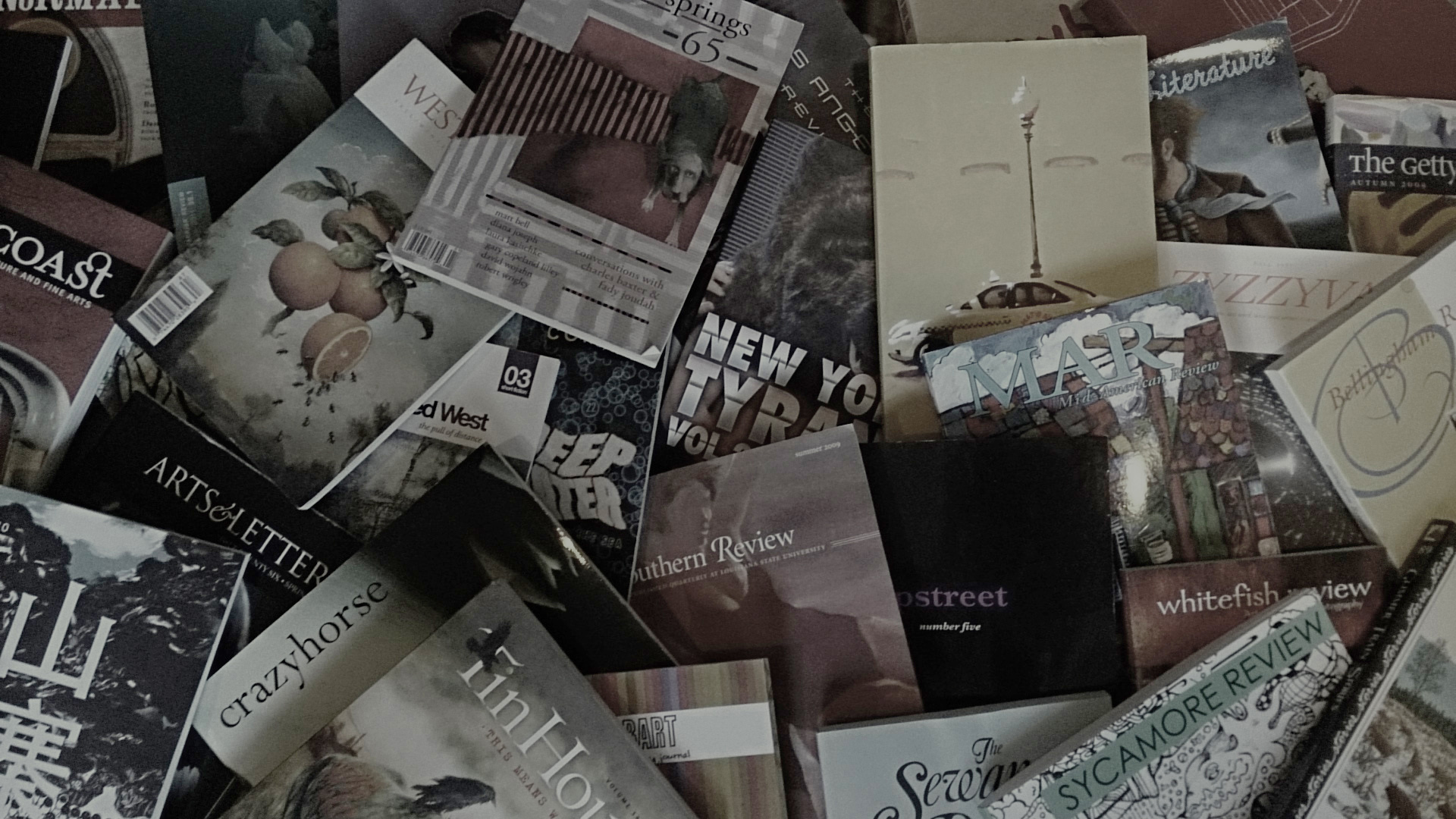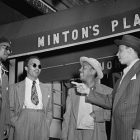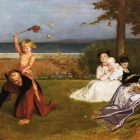The Best Short Story I Read in a Lit Mag This Week: “Beach Boys” by Michelle Meyers
In these modern times, we have greater access to the news of the wide world than ever before. In the flash fiction piece “Beach Boys” (decomp), Michelle Meyers explores two twins who tried their best to avoid the headlines of their times, only to be drawn in despite their efforts.
Meyers starts the twins’ journey in the womb.
“We were brothers. Twin brothers, a single egg rupture. Womb dancers, arms around necks, legs twisted together. We were joined at the knee, the hip, the shoulder, flaps of skin scalpel separated. Our birth made page 5 of the local news. If we’d shared a heart or a liver, we would’ve been on page 1. Our hair was the cornhusks of our Midwest roots, our eyes the atmospheric blue of the California coast, galaxies of freckles spread across our cheeks, two galaxies interconnected with one another.”
While it’s no mistake that Meyers mentions what makes the news in this first paragraph (more on that later), Meyers focuses primarily in this first paragraph on the ways in which the twins are beginning to separate—first the rupture, then the scalpel—but also the ways in which they are still connected—hair, eyes, freckles. They’re identical twins, sharing the same DNA. But as time goes on they share less and less.
“We built ourselves a ship out of driftwood and seaweed. You were the captain. I was the first mate. We ate biscuits and cold sausages and drank fruit punch pretending it was rum. You had a peg leg. I had an eye patch. We sought out treasures like loose change and seashells. When night fell and we holed up in the cabin, we would reveal to one another our deepest fears. You were afraid that the government would find us, take us, bury us in paper and bureaucracy. Brothers were not supposed to live as we did. I was afraid that you would disappear, that I would wake up one morning and you would be gone, evaporated into the ether. We were both afraid of the Soviets, of massive retaliation, of nuclear annihilation.”
In the first two sections, Meyers uses only “we” and “our” in describing the boys and their features. While they are separated physically, they still operate at a unit. That changes in the third section, above. While they are playing together, they begin taking on different roles, and the use of “you” and “I” implies that the boys are beginning to develop distinct personalities, roles, and fears.
Here also we see the introduction of the wider world at large—the Soviets, bureaucracy. The insulated world of childhood appears to be giving way. But Meyers introduces an interesting plot development—escapism on the part of the boys. Met with the larger world, they retreat back into a more isolated existence. They quit school, start doing drugs, surf, and avoid any news of the wider world.
“We did not know about the assassinations of JFK, Malcolm X, and Martin Luther King, Jr. We did not know that Lyndon B. Johnson had signed the Civil Rights Act in 1964 or the Voting Rights Act in 1965. We did not know that there were people protesting police discrimination in Watts. We did not know that the United States had sent troops to Vietnam. We were all surf and sand and blue skies and getting high and whitewashed sunshine.”
Meyers use of the reminiscent narrator exposing what they didn’t know and see foreshadows what lies ahead. The brothers were able to stave off the wider world for a time, but eventually it comes for them. First, in the form of an anthropomorphized storm wave, taking the narrator’s brother,
“You toppled off the board into the throat of the wave. We all expected you to come back up. Only once the surf had settled did we see the thin trail of blood seeping from over by the rocks.”
…and then war,
“Two months later my boots scuttered across a landmine. The Army’s official report said that it was my fault, that I was running away. True, I did not want to kill the Viet Cong. I did not want to kill anybody. But the real truth was that I was already dead….
We were brothers. We died young. We will not be remembered. Only the ocean has truly known us. Only the ocean has cared.”
I think the key to the story is in those last two sentences. Through both the title “Beach Boys” and the surfer lifestyle described, Meyers lulls the reader into dismissing these boys as shallow and disengaged, only to reveal that, in the end, they were fully engaged with each other and the world, just in a very different way than those in the news. Here in the end, the narrator describes the ocean—whose throat swallowed his brother—as the “only one who knew and cared.” Perhaps there’s something to that, something that deserves to be taken just as seriously as the page one news.
About Author
Ross McMeekin’s stories appear or are forthcoming in journals such as Virginia Quarterly Review, Post Road Magazine, Shenandoah, Redivider, and Tin House (online). He edits the literary journal Spartan. He has received fellowships from both the Jack Straw Cultural Center and Richard Hugo House in Seattle.




